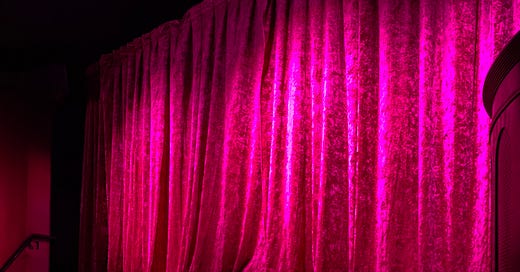In Defense of Concert Reviews
When I worked at the Provincetown Independent, there was a policy that we wouldn’t cover one-off performances. The idea being that someone reading a review should be able to attend the concert in question.
As the Independent is a weekly, this was difficult to achieve. And so, I came up with subtle ways of subverting the policy.
For example, I reviewed a virtual concert by the Cape Cod Chamber Orchestra. I asked for a pre-screening, then timed my article with the concert’s release. It felt like time traveling.
It also created an unusual situation. The concert I saw would be the exact same concert the reader would see and perhaps rewatch. This made me focus on different things.
For one, I was able to more easily fact-check myself. Musical inaccuracies made even more inexcusable, and jarring, to the reader.
I also focused on a quality called “liveness.” Moments that made me forget that I was watching a screen. The crunch of a bow. The friction of a page turn. A player’s sudden intake of breath.
When in-person concerts returned, I traveled to New York City to see Terence Blanchard’s Fire Shut Up in My Bones and Matthew Aucoin’s Eurydice at the Met Opera, timing my reviews with local simulcasts.
I, once again, tried to capture the sense of being there. The familiar sound of tuning. The sea of masked faces. The dizzying excitement in the room.
The Independent’s policy is one I understand, on some level, but mostly disagree with. To me, reviews are more than mere teasers. Done well, they’re art in their own right.
In that way, they are like ekphrasis. No one, regarding Keats’ “Ode to a Grecian Urn” would say, “There’s really no point in reading it unless you see the Sosibios Vase in person.”
Similarly, while reading a review might make you want to (or not want to) see a performance, that’s not the end goal. If anything, you should feel as though you were already there.
When I read criticism by Virgil Thomson or Edwin Denby, for example, I don’t think, “Well, this is pointless. I’ll never be able to see any of these performances!”
Instead, I delight in the ingenious sentences. The feeling of watching through the critic’s eyes. A sense of ephemerality preserved, as if in amber.
I admit, though, that this philosophy is self-serving, as someone who prefers slow to fast writing.
Whereas reviewers for, say, the New York Times, must slip out during curtain call to publish by morning, here, on Poison Put to Sound, I get to do what I want.
During the concert, I take ample notes. My scrawl sometimes barely decipherable by the time the house lights come back on. Then, I sleep on it.
Something magical happens in those unconscious hours. Often, when I wake up, I know exactly what I think. But sometimes I don’t, and the percolation process continues over the next days.
Some might say this method introduces error. The notes help, but memory is still a fickle thing, stretching and folding the facts, like rubato.
However, isn’t an opinion formed in post-performance haste also a kind of inaccuracy? A concert unfolds over time. And its end point is not, necessarily, when the curtain drops.
Shouldn’t a review be that way, too? That’s how I feel at the moment, but maybe I’ll change my mind.




